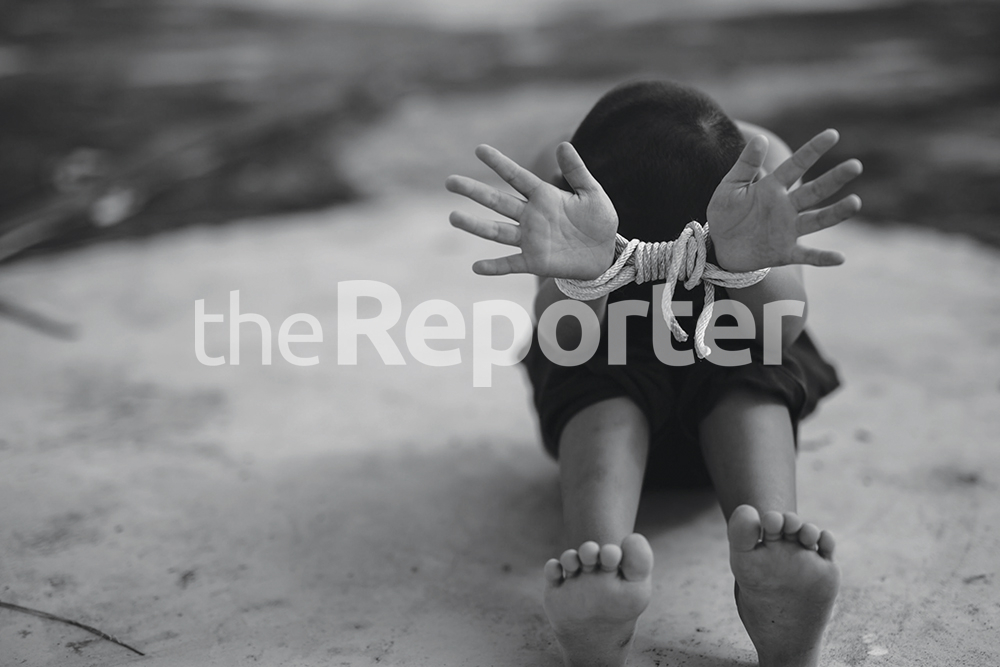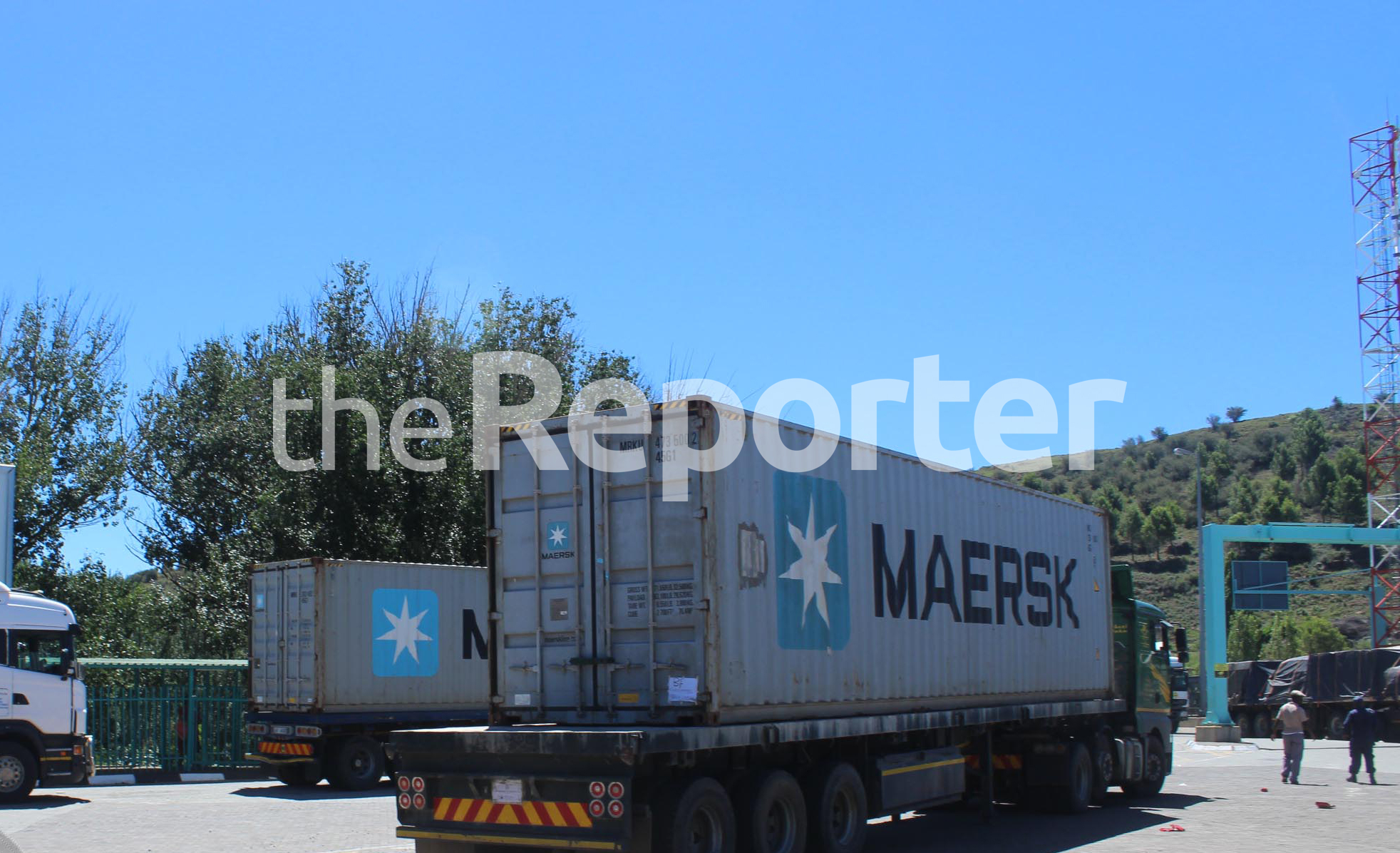By ‘Majirata Latela
The United States 2020 Trafficking in Persons Report (Lesotho) illustrates the extent to which human trafficking in Lesotho is entrenched and institutionalized, thus threatening Lesotho’s chances of Millennium Challenge Corporation (MCC) Compact Development Grant Agreement worth $5.78 million.
According to the report, the government of Lesotho does not fully meet the minimum standards for the elimination of trafficking and is not making significant efforts to do so.
The situation is said to be downgrading the country to Tier 3 on countries that are unable to fight trafficking in person.
“Tier three is actually junk status. It level means even our longest relationships that we had with other countries are on the verge of collapsing. When I learned about the report and its contents, I instructed the principal secretary to furnish the ministry with ways that we can fight this vice,” home affairs minister Motlalentoa Letsosa told parliament recently.
We look at the performance of some of the key institutions and how they grapple to contain this insidious and pervasive scourge.
Principal Secretary Home Affairs, Tumelo Raboletsi, says:
Lesotho’s Anti-trafficking in Persons Act of 2011 has loopholes which need to be addressed. Even though the law is currently under amendment and has been passed by the Lower House of Parliament and is now in the Senate committee, it is still clear that there will have to be another amendment to the Act so as to address some of the loopholes that have already been identified,
The issue of granting bail to perpetrators is also highlighted in the US report and needs to be addressed, and while at it, penalties for those perpetrators should also be more stringent.
When the government of Lesotho heard about the report, a task team of relevant cabinet ministries was formed and the minister of home affairs, Motlalentoa Letsosa is the chairperson as his ministry is said to be at the forefront of this pandemic.
To make sure that we play our part in the fight against trafficking and smuggling of people, we have decided to reshuffle the four human trafficking offices in Maseru so that in the end we will be able to see where the loophole is and then do investigations.
While doing this, we have had our officers complaining of being transferred from their offices and they have taken the ministry to court. I will not say much about the case because it is still before the courts. Fighting to stay in those offices has raised questions as to why they want to stay in those offices forever.
If there is an office that needs to be taken to task over trafficking, it is ours because we are the ones that allow people to enter the country without conducting extensive investigations on why people are coming into the country.
The other problem we have realised is that our entry visa does not interrogate people enough to find out the reasons why they come into the country; also, there is no follow up that the country does to see if a person who was granted a visa is actually doing what he said he is coming to Lesotho to do, and if they do go back after it expires.
We have already established that after getting visas to enter the country, these people bribe some of our officers and forge some of their documents to acquire residence permit fraudulently. Furthermore because of the easy availability of permits, some people get them to get into Lesotho and then go on to acquire fraudulent documents that enable them to transit to other countries using Lesotho passports.
Our visa application and acquisition needs to be overhauled, and the ministry should make sure that people follow their conditions.
We have also noticed that there are foreigners that come into the country and act like they are doing legit business while also running illegal businesses in the background. There are people who attend these Muslim churches, who we suspect are doing this trafficking, and we will be investigating them.
Since we started interrogating people on why they come into the country, we have arrested more than 15 foreigners coming into the country via dubious channels; we are establishing how they acquired the visas and what they are going to do into the country. It is very unfortunate that some don’t even know why they are here because they claim to have been directed by someone in South Africa to come here.
We have also encountered a challenge of people politicising the efforts that we are taking to clamp down on this trafficking ring, because it is clearly a chain of people working together towards a common goal.
Inspector ‘Mamochato ‘Molaoa – LMPS Child and Gender Protection Unit
Many cases that we have of trafficking are of people who are recruited by close acquaintances like relatives, neighbours and friends working in South Africa.
Due to unemployment, and the emerging effects of Covid-19, we anticipate to have more cases of people who will be trafficked into South Africa with the promise that they are going to get jobs. Usually these people come for the Christmas holidays, and will be having money to shower their kids with nice clothes; they then lure others into joining them or tell them that their bosses in SA are looking for people to work for them
They will also be promising to help them settle in when they get there and sometimes even offer to help them cross the border without documents. Then, when the victim arrives in SA, they learn that the job of domestic work that was promised to them is non-existent.
Also, some people go to SA through these obscure recruiting urgencies and when they get there, they will have to pay rent for staying at a certain place and sometimes even have to feed themselves. That is when they end up experiencing hardships and end up in the clutches of prostitution rings.
We have also noticed new trends of beauty pageants being used as a front for trafficking. There is one lady who applied to contest in a pageant in China; everything was prepared for her by that ‘organisation’ but in the end when she arrived at the airport, she was only told that the contest she was attending had already passed and those hosts of hers were misleading her.
She, however, got assisted and was deported back home. She got lucky that everything got clear even before she arrived at her destination.
There is also this other trend of new graduates searching for internships. We have had a case of a female who got one of those internships through the internet and then prepared herself to go to SA, only to find that she was placed in a hotel where she was working alone. She realised that something was fishy and contacted people to let them know where she was. She was successfully rescued.
There are people who come forward to report trafficking when they are rescued. For fear of humiliation, some do not even want to open cases because they fear that going frequent visits to the courtroom will only traumatise them even more.
In cases which happen in South SA, it is somehow very difficult to get the perpetrators because usually victims are not able to explain the places where they were held captive.
On the flip side, people only think human trafficking happens from country to country and are not taking this one of district to district very seriously, and it is happening. There are people who still get trafficked from their districts locally and then end up being used as sex slaves.
Magistrate Puseletso McPherson
Lesotho has many kids who are double orphans, and trafficking kingpins are capitalising on that because they have realised that many them are abandoned and left to their own devices. These people sometimes come to court to secure court orders under the pretext that of fostering or adopting such children; but because the police are not doing enough background check, the children end up trafficked just like that.
And just because these unscrupulous people promise them heaven, these kids lie when they are called to explain why they want to be adopted by the person. They even lie about their situations and plead that they be allowed to be fostered.
I would like the police and the ministry of home affairs to also make sure that they do a proper background check because we have realised as magistrates that some of these children’s birth certificates seem to have been forged. Mind you, these traffickers have a lot of money to throw around and get their way.
After these people have applied for guardianship, they disappear with the kids and the ministries that are involved – such as the ministry of social development – don’t track where these kids have gone to and if they are still well taken care of by their benefactors.
One other crucial issue is that magistrates do not have proper training on human trafficking cases, that is why sometimes when a case of human trafficking gets to court many people don’t want to handle it because they lack the skills to preside over it.
Also, the fines that are imposed to these perpetrators are also depressing because they are just too small. Imagine hearing a long case and in the end fining the guilty person a lousy M20.
Not only that, deportation orders are not always followed through. We issue orders that people be deported but, after some time you see them back in court on charges similar to the ones you ordered they be deported for. It is very clear that the ministry of home affairs and others do not follow up on the deportation to ascertain that it is enforced.
Usually when we ask why people are not deported as per the court order, police tell us that there is no money to do that. We appeal to the ministry to enforce deportation.









